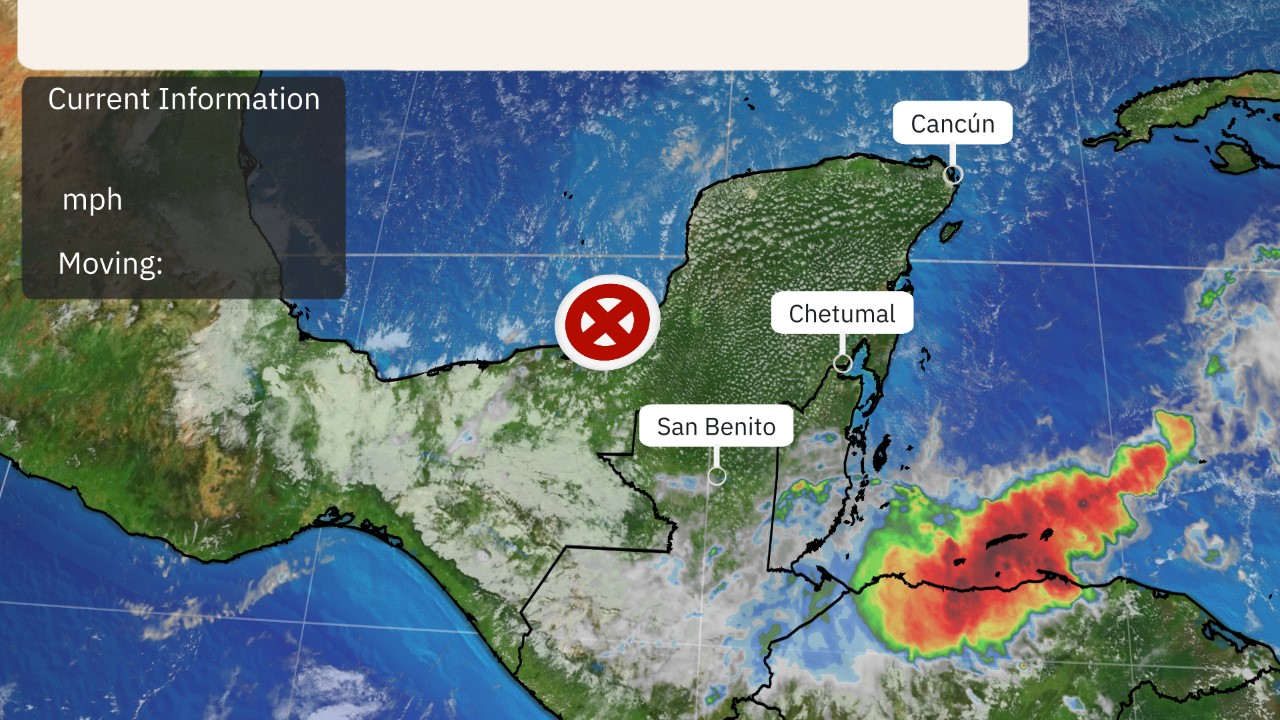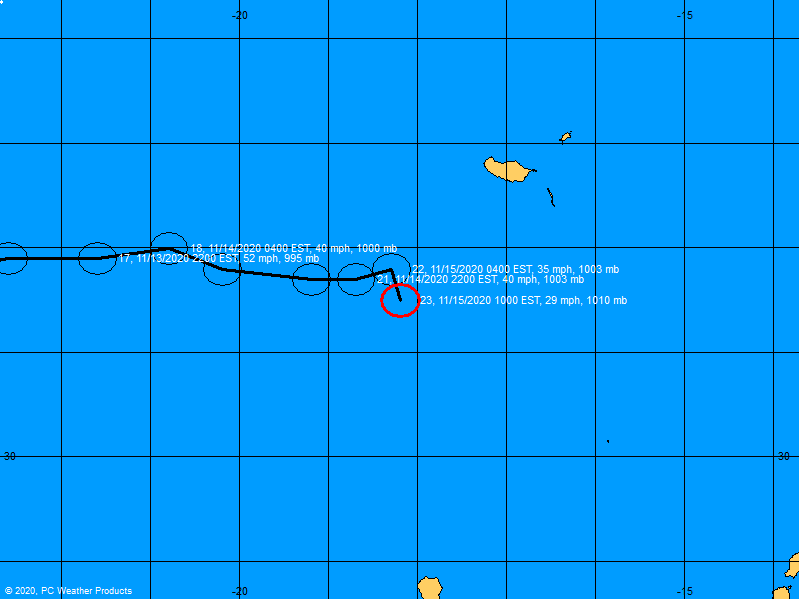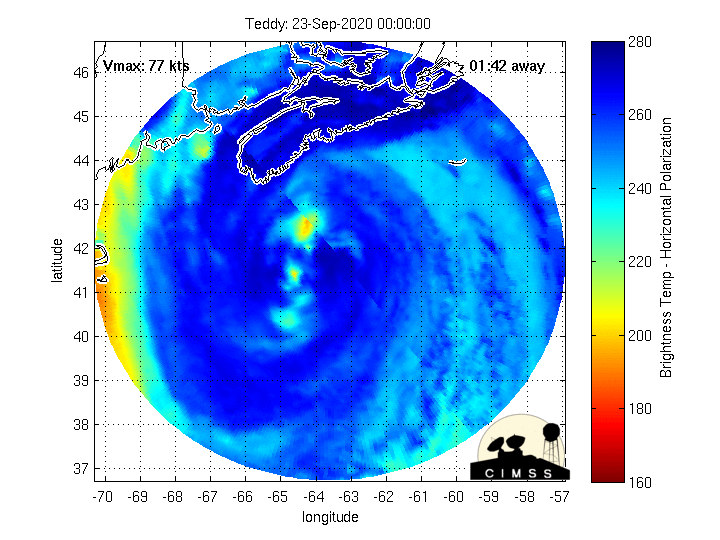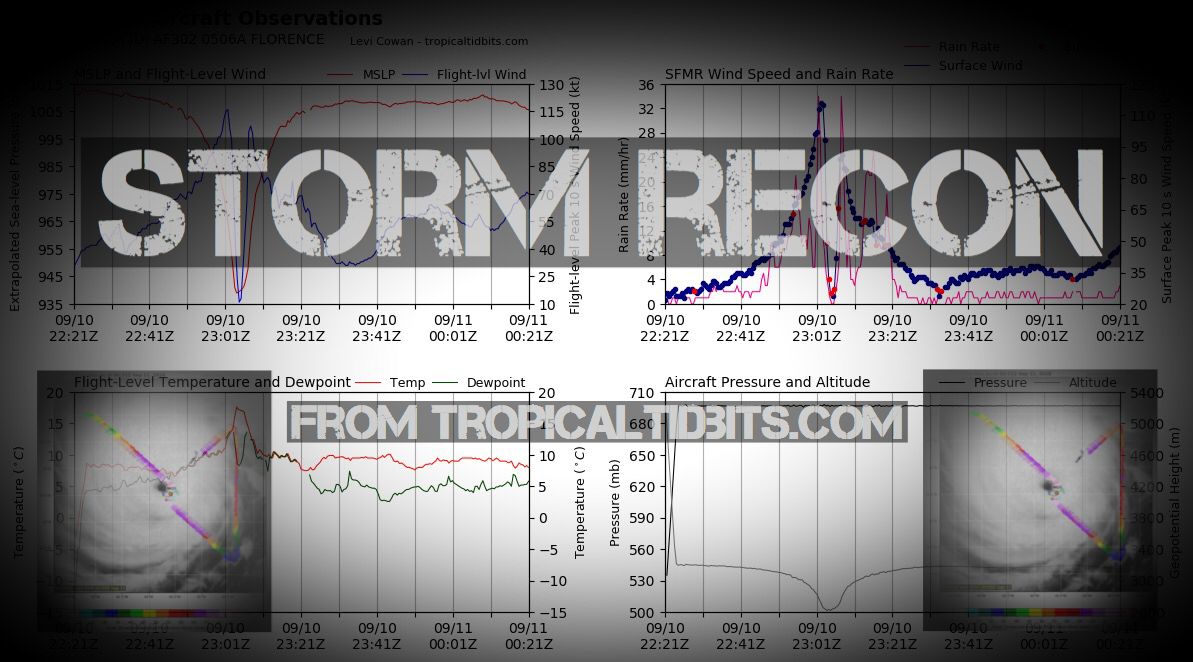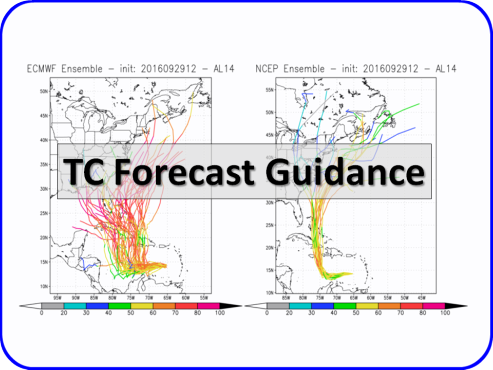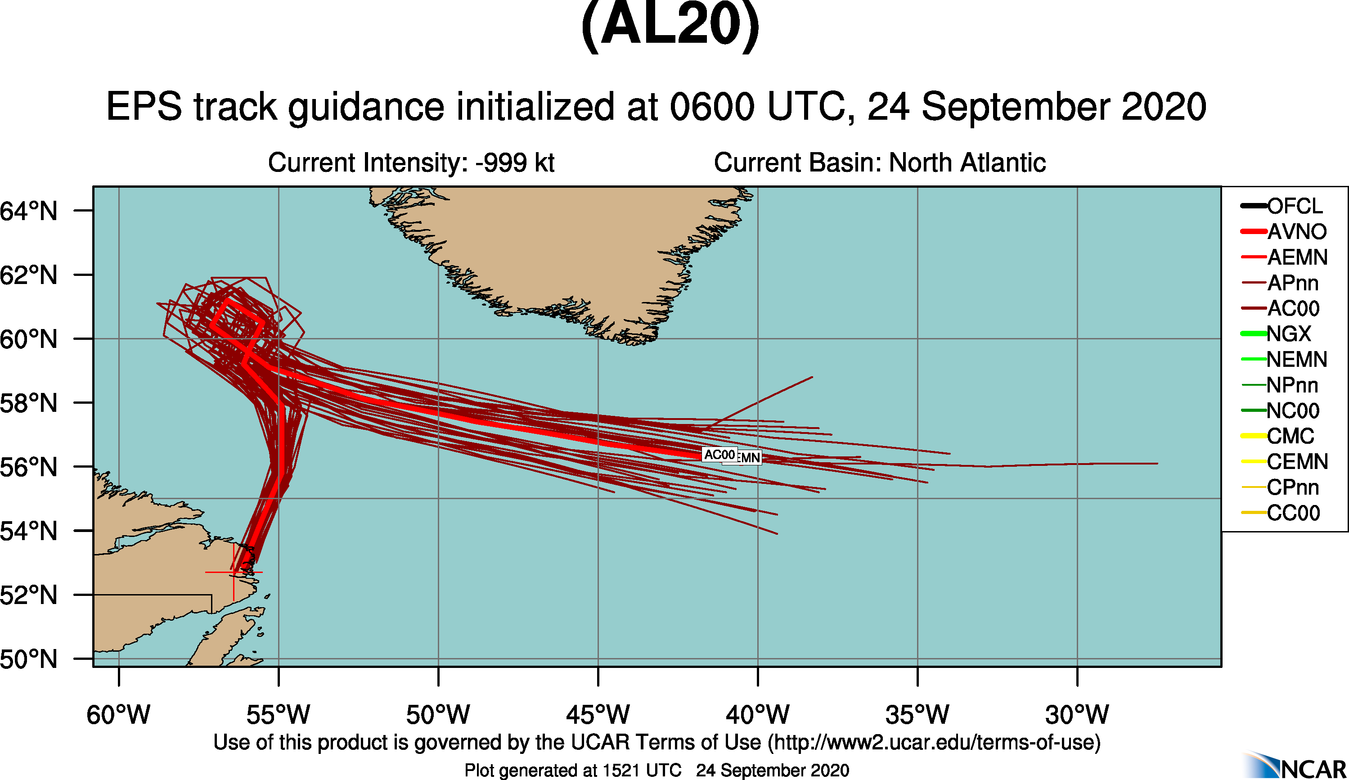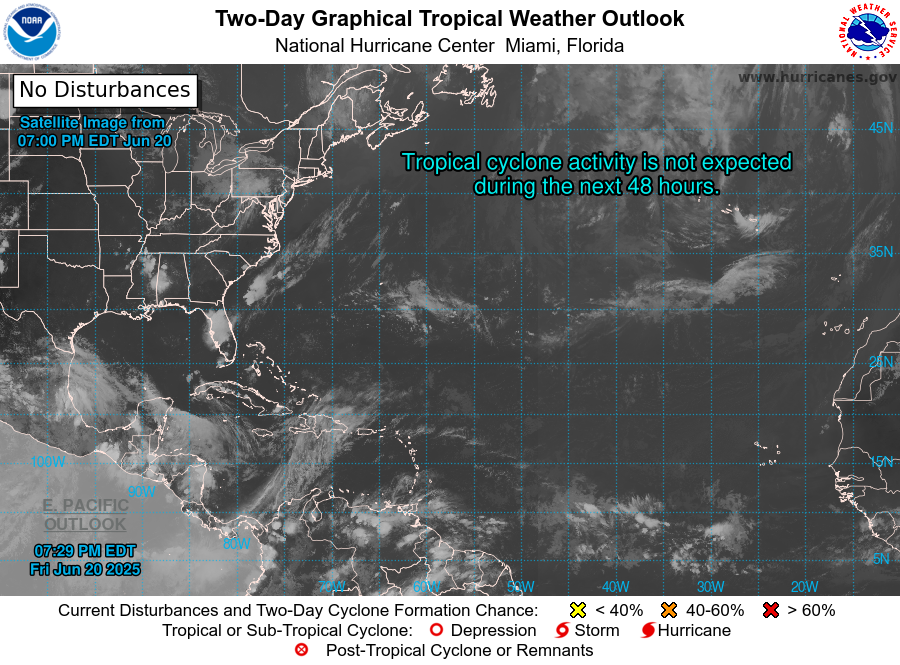SUPPORT TRACK THE TROPICS
Over the last decade plus if you appreciate the information and tracking I provide during the season along with this website which donations help keep it running please consider a one time... recurring or yearly donation if you are able to help me out...
Venmo: @TrackTheTropicsLouisiana
Website: TrackTheTropics.com/DONATE
Venmo: @TrackTheTropicsLouisiana
Website: TrackTheTropics.com/DONATE
Track The Tropics is the #1 source to track the tropics 24/7! Since 2013 the main goal of the site is to bring all of the important links and graphics to ONE PLACE so you can keep up to date on any threats to land during the Atlantic Hurricane Season! Hurricane Season 2025 in the Atlantic starts on June 1st and ends on November 30th. Do you love Spaghetti Models? Well you've come to the right place!! Remember when you're preparing for a storm: Run from the water; hide from the wind!
Tropical Atlantic Weather Resources
- NOAA National Hurricane Center
- International Meteorology Database
- FSU Tropical Cyclone Track Probabilities
- Brian McNoldy Atlantic Headquarters
- Brian McNoldy Tropical Satellite Sectors
- Brian McNoldy Infrared Hovmoller
- Brian McNoldy Past TC Radar Loops
- Weather Nerds TC Guidance
- Twister Data Model Guidance
- NOAA Tropical Cyclone Tracks
- Albany GFS/ EURO Models/ Ensembles
- Albany Tropical Cyclone Guidance
- Albany Tropical Atlantic Model Maps
- Pivotal Weather Model Guidance
- Weather Online Model Guidance
- UKMet Model Guidance/ Analysis/ Sat
- ECMWF (EURO) Model Guidance
- FSU Tropical Model Outputs
- FSU Tropical Cyclone Genesis
- Penn State Tropical E-Wall
- NOAA HFIP Ruc Models
- Navy NRL TC Page
- College of DuPage Model Guidance
- WXCharts Model Guidance
- NOAA NHC Analysis Tools
- NOAA NHC ATCF Directory
- NOAA NCEP/EMC Cyclogenesis Tracking
- NOAA NCEP/EMC HWRF Model
- NOAA HFIP Model Products
- University of Miami Ocean Heat
- COLA Max Potential Hurricane Intensity
- Colorado State RAMMB TC Tracking
- Colorado State RAMMB Floaters
- Colorado State RAMMB GOES-16 Viewer
- NOAA NESDIS GOES Satellite
- ASCAT Ocean Surface Winds METOP-A
- ASCAT Ocean Surface Winds METOP-B
- Michael Ventrice Waves / MJO Maps
- TropicalAtlantic.com Analysis / Recon
- NCAR/RAL Tropical Cyclone Guidance
- CyclonicWX Tropical Resources
Hurricane Teddy – 2020 Hurricane Season
Storm Tracking Important Links:
FSU Track Probability /
NOAA Tracker /
Albany Tracker -
Navy NRL Page /
HFIP Products /
TropicalAtlantic Tracker /
NCAR Guidance Page /
CyclonicWX Tracker Products /
CIMSS Tracker / TropicalTidbits Tracker / UWM Tracker / SFWMD Models
- Sun, 20 Oct 2024 14:48:54 +0000: Atlantic Remnants Of Nadine Advisory Number 8 - Atlantic Remnants Of Nadine Advisory Number 8
797
WTNT35 KNHC 201440
TCPAT5
BULLETIN
Remnants Of Nadine Advisory Number 8
NWS National Hurricane Center Miami FL AL152024
1000 AM CDT Sun Oct 20 2024
...NADINE DISSIPATED OVER SOUTHERN MEXICO...
...HEAVY RAINFALL AND FLASH FLOODING STILL EXPECTED OVER
PARTS OF BELIZE, GUATEMALA, AND MEXICO...
SUMMARY OF 1000 AM CDT...1500 UTC...INFORMATION
-----------------------------------------------
LOCATION...16.5N 93.0W
ABOUT 165 MI...265 KM SSW OF CIUDAD DEL CARMEN MEXICO
MAXIMUM SUSTAINED WINDS...30 MPH...45 KM/H
PRESENT MOVEMENT...WSW OR 250 DEGREES AT 14 MPH...22 KM/H
MINIMUM CENTRAL PRESSURE...1007 MB...29.74 INCHES
WATCHES AND WARNINGS
--------------------
CHANGES WITH THIS ADVISORY:
None.
SUMMARY OF WATCHES AND WARNINGS IN EFFECT:
There are no coastal watches or warnings in effect.
DISCUSSION AND OUTLOOK
----------------------
At 1000 AM CDT (1500 UTC), the remnants of Nadine were located near
latitude 16.5 North, longitude 93.0 West. The remnants are moving
toward the west-southwest near 14 mph (22 km/h) and they are
expected to move into the eastern Pacific later today.
Maximum sustained winds are near 30 mph (45 km/h) with higher gusts.
The combination of the remnants of Nadine and influences from a
Gulf of Tehuantepec gap wind event are forecast to result in the
formation of a new low pressure system off the coast of southern
Mexico in a day or so. Additional development is expected after
that time, and a tropical depression is expected to form during the
early to middle part of this week while the system moves westward
at about 15 mph away from the coast of Mexico.
For additional information on the remnants of Nadine please see
High Seas Forecasts issued by the National Weather Service, under
AWIPS header NFDHSFEPI, WMO header FZPN02 KWBC, on the web at
ocean.weather.gov/shtml/NFDHSFEPI.php, and the latest updates in the
East Pacific Tropical Weather Outlook on the web at
hurricanes.gov/gtwo.php?basin=epac.
The estimated minimum central pressure is 1007 mb (29.74 inches).
HAZARDS AFFECTING LAND
----------------------
Key messages for the remnants of Nadine can be found in the
Tropical Cyclone Discussion under AWIPS header MIATCDAT5 and WMO
header WTNT45 KNHC and on the web at
hurricanes.gov/text/MIATCDAT5.shtml
RAINFALL: Additional rainfall amounts of 4 to 8 inches, with
isolated areas up to 12 inches, are expected across the Mexican
states of Chiapas and Tabasco into Veracruz and Oaxaca through
Tuesday morning. Additional rainfall amounts of 1 to 2 inches, with
isolated amounts up to 4 inches, are expected for the remaining
portions of southeastern Mexico into Guatemala and Belize.
For a complete depiction of forecast rainfall associated with
the remnants Nadine, please see the National Weather Service
Storm Total Rainfall Graphic, available at
hurricanes.gov/graphics_at5.shtml?rainqpf.
NEXT ADVISORY
-------------
This is the last public advisory issued by the National Hurricane
Center on this system.
$$
Forecaster Landsea
- Sun, 20 Oct 2024 14:39:56 +0000: Atlantic Remnants of NADINE Forecast/Advisory Numb... - Atlantic Remnants of NADINE Forecast/Advisory Number 8 NWS NATIONAL Hurricane CENTER MIAMI FL AL152024 1500 UTC SUN OCT 20 2024 REMNANTS OF CENTER LOCATED NEAR 16.5N 93.0W AT 20/1500Z POSITION ACCURATE WITHIN 50 NM PRESENT MOVEMENT TOWARD THE WEST-SOUTHWEST OR 250 DEGREES AT 12 KT ESTIMATED MINIMUM CENTRAL PRESSURE 1007 MB MAX SUSTAINED WINDS 25 KT WITH GUSTS TO 35 KT. WINDS AND SEAS VARY GREATLY IN EACH QUADRANT. RADII IN NAUTICAL MILES ARE THE LARGEST RADII EXPECTED ANYWHERE IN THAT QUADRANT. REPEAT...CENTER LOCATED NEAR 16.5N 93.0W AT 20/1500Z AT 20/1200Z CENTER WAS LOCATED NEAR 17.0N 92.5W FORECAST VALID 20/0000Z...DISSIPATED REQUEST FOR 3 HOURLY SHIP REPORTS WITHIN 300 MILES OF 16.5N 93.0W THIS IS THE LAST FORECAST/Advisory ISSUED BY THE NATIONAL HURRICANE CENTER ON THIS SYSTEM $$ FORECASTER LANDSEA
000
WTNT25 KNHC 201439
TCMAT5
REMNANTS OF NADINE FORECAST/ADVISORY NUMBER 8
NWS NATIONAL HURRICANE CENTER MIAMI FL AL152024
1500 UTC SUN OCT 20 2024
REMNANTS OF CENTER LOCATED NEAR 16.5N 93.0W AT 20/1500Z
POSITION ACCURATE WITHIN 50 NM
PRESENT MOVEMENT TOWARD THE WEST-SOUTHWEST OR 250 DEGREES AT 12 KT
ESTIMATED MINIMUM CENTRAL PRESSURE 1007 MB
MAX SUSTAINED WINDS 25 KT WITH GUSTS TO 35 KT.
WINDS AND SEAS VARY GREATLY IN EACH QUADRANT. RADII IN NAUTICAL
MILES ARE THE LARGEST RADII EXPECTED ANYWHERE IN THAT QUADRANT.
REPEAT...CENTER LOCATED NEAR 16.5N 93.0W AT 20/1500Z
AT 20/1200Z CENTER WAS LOCATED NEAR 17.0N 92.5W
FORECAST VALID 20/0000Z...DISSIPATED
REQUEST FOR 3 HOURLY SHIP REPORTS WITHIN 300 MILES OF 16.5N 93.0W
THIS IS THE LAST FORECAST/ADVISORY ISSUED BY THE
NATIONAL HURRICANE CENTER ON THIS SYSTEM
$$
FORECASTER LANDSEA
- Sun, 20 Oct 2024 14:42:53 +0000: Atlantic Remnants Of Nadine Discussion Number 8 - Atlantic Remnants Of Nadine Discussion Number 8
011
WTNT45 KNHC 201442
TCDAT5
Remnants Of Nadine Discussion Number 8
NWS National Hurricane Center Miami FL AL152024
1000 AM CDT Sun Oct 20 2024
First-light GOES-16 imagery and station observations suggest that
the surface circulation associated with Nadine has dissipated over
southern Mexico. Peak sustained winds remain 25 kt, mainly over the
Bay of Campeche.
The remnants of Nadine are moving toward the west-southwest at
around 12 kt and they are expected to move into the eastern Pacific
later today.
The combination of the remnants of Nadine and influences from a Gulf
of Tehuantepec gap wind event are forecast to result in the
formation of a new low pressure system off the coast of southern
Mexico in a day or so. Additional development is expected after that
time, and a tropical depression is expected to form during the early
to middle part of this week while the system moves westward at about
15 kt away from the coast of Mexico.
For additional information on the remnants of Nadine as it enters
the eastern Pacific please see High Seas Forecasts issued by the
National Weather Service, under AWIPS header NFDHSFEPI, WMO header
FZPN02 KWBC, on the web at ocean.weather.gov/shtml/NFDHSFEPI.php,
and the latest updates in the East Pacific Tropical Weather Outlook
on the web at hurricanes.gov/gtwo.php?basin=epac.
Key Messages:
1. Localized areas of flash flooding will remain possible in
the vicinity of the remnants of Nadine across Belize, northern
Guatemala, and southern Mexico through Tuesday morning.
FORECAST POSITIONS AND MAX WINDS
INIT 20/1500Z 16.5N 93.0W 25 KT 30 MPH...INLAND
12H 21/0000Z...DISSIPATED
$$
Forecaster Landsea


 DONATE
DONATE

